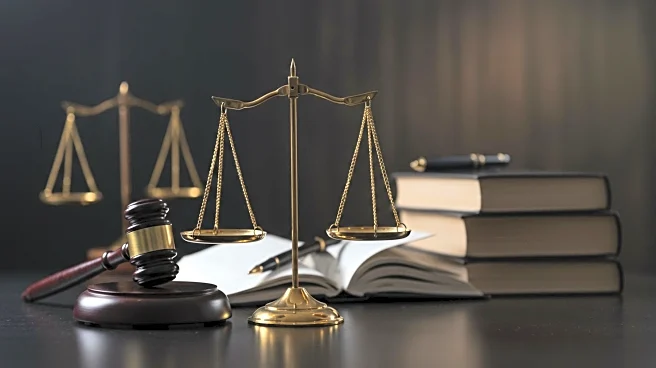What's Happening?
The trial concerning President Trump's deployment of National Guard troops to Los Angeles has concluded, with arguments focusing on the limits of presidential authority and the applicability of the Posse Comitatus Act. President Trump deployed 4,000 National Guard troops and 700 Marines to Los Angeles in June, citing the need to protect federal property amid protests against Immigration and Customs Enforcement operations. California Governor Gavin Newsom filed a lawsuit seeking an injunction to limit the military's role, arguing that the deployment violates the Posse Comitatus Act, which restricts military involvement in domestic law enforcement. The Department of Justice contends that the Act does not apply and that California has not demonstrated sufficient harm to warrant legal action. U.S. District Judge Charles Breyer expressed skepticism about the government's claims, questioning the absence of limits on a national police force and the relevance of the Posse Comitatus Act.
Why It's Important?
This legal battle highlights the tension between state and federal authority, particularly regarding the use of military forces for domestic purposes. The outcome could set a precedent for how the Posse Comitatus Act is interpreted and applied in future situations involving military deployment within the United States. If California's challenge is successful, it may limit the president's ability to deploy military forces for domestic law enforcement, reinforcing state rights and federalism principles. Conversely, if the court sides with the federal government, it could expand presidential powers in deploying military forces domestically, potentially affecting civil liberties and state autonomy.
What's Next?
Judge Breyer has not provided a timeline for his ruling, leaving the future of the National Guard deployment uncertain. The decision could influence future legal interpretations of the Posse Comitatus Act and presidential authority in domestic military operations. Stakeholders, including state governments and civil rights organizations, are likely to closely monitor the outcome, which could prompt further legal challenges or legislative action depending on the ruling.
Beyond the Headlines
The case raises broader questions about the balance of power between state and federal governments and the role of the military in civilian affairs. It touches on historical concerns about standing armies and the potential for federal overreach, echoing debates from the time of the Constitution's framing. The trial also underscores the ongoing national conversation about immigration enforcement and civil rights, with implications for how federal and state authorities navigate these contentious issues.








